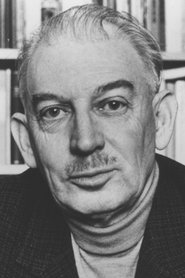
LIving Colour
During the 1960s, artist Eric Olson embarked on a series of works under the title Optochromi. The vast majority of these were plexiglass objects: most were sculptures although a few are formally closer to paintings. From a cinematic point of view one could describe the Optochromi sculptures as metaphysical colour animations frozen in time – so much so that modern composer Jan Wilhelm Morthenson made his film Interferences (1966), a tribute to 1920s abstraction à la Richter, with the use of Olson’s works. Gösta Werner did something similar five years earlier with Levande färg – only that he mainly circles the sculptures, and contemplates them more than he interacts with them. A respectfully curious distance is always kept.
- Overview
- Crew
LIving Colour
- Overview
- Crew
Status
Released
Release Date
Jan 1, 1961
Runtime
0h 6m
Genres
Documentary
Original Title
Levande Färg
Director
Gösta Werner
Description
During the 1960s, artist Eric Olson embarked on a series of works under the title Optochromi. The vast majority of these were plexiglass objects: most were sculptures although a few are formally closer to paintings. From a cinematic point of view one could describe the Optochromi sculptures as metaphysical colour animations frozen in time – so much so that modern composer Jan Wilhelm Morthenson made his film Interferences (1966), a tribute to 1920s abstraction à la Richter, with the use of Olson’s works. Gösta Werner did something similar five years earlier with Levande färg – only that he mainly circles the sculptures, and contemplates them more than he interacts with them. A respectfully curious distance is always kept.
